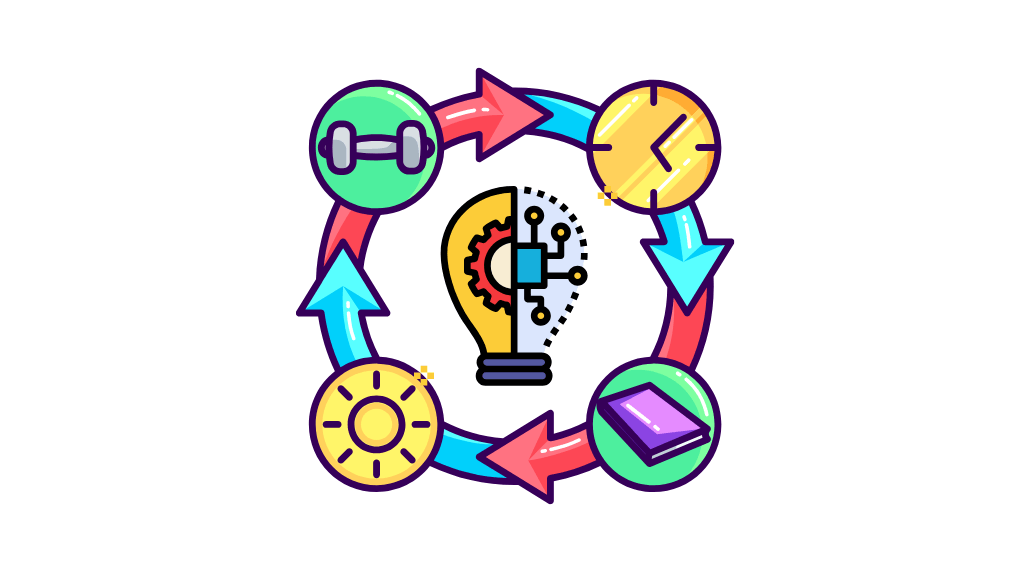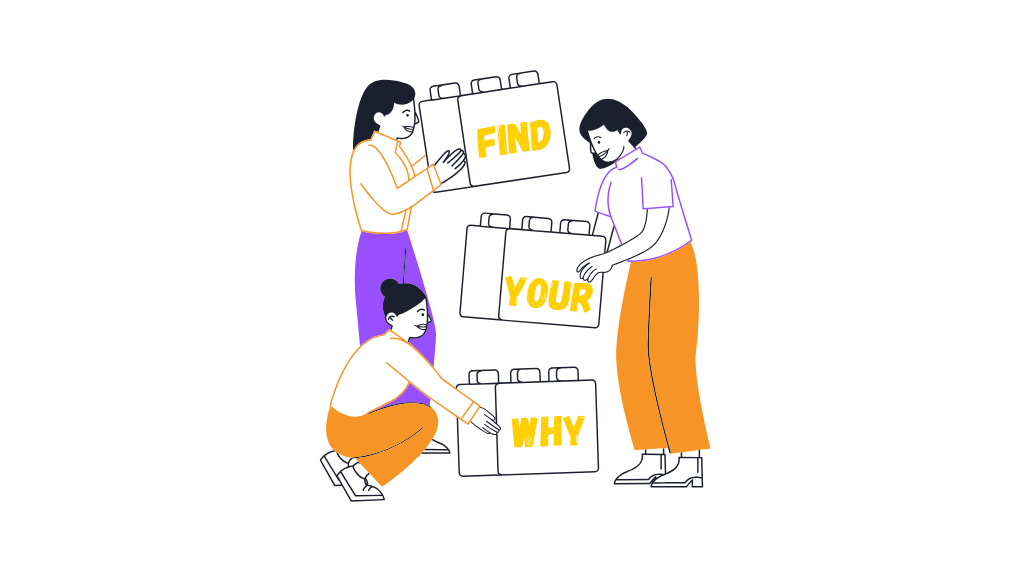The Impact of Music and Sound Therapy on Food Addiction
When we talk about recovery from food addiction, most people think of therapy, meal plans, journaling, or support groups. These are all vital tools, but recovery is also deeply emotional, and sometimes words aren’t enough.

That’s where music and sound therapy can come in. Whether it’s the song that lifts your spirit, the playlist that grounds you during cravings, or the healing resonance of sound baths, music can offer something truly special: emotional release without the need for explanation.
Music bypasses logic. It moves straight to the heart, and in recovery, that can be exactly what we need.
Why Music Matters in Recovery
Food addiction is rarely about just food. It’s often a response to emotional pain, trauma, loneliness, or chronic stress. Music, like food, can evoke deep feelings, but unlike food, music doesn’t cause harm. In fact, research and real-life experience shows that music:
Activates the brain’s reward system in a healthy way
Helps regulate the nervous system
Reduces cortisol (the stress hormone)
Enhances self-expression
Promotes feelings of safety and calm
For someone healing from food addiction, music can become a safe, nurturing way to process feelings, shift your mood, and reconnect with your body.
Understanding Sound Therapy
Sound therapy goes beyond listening to your favourite song. It involves the intentional use of sound, such as gongs, singing bowls, tuning forks, or guided sound meditations, to promote physical, emotional, and energetic healing. You might experience:
Sound baths, where you lie back and allow sound waves to wash over you
Binaural beats, where two slightly different tones play in each ear to help with focus, relaxation, or sleep
Vocal toning, where you use your own voice to create healing vibrations in the body
These practices aren’t just relaxing, they can help you reconnect with your body in a safe, non-judgemental way. For people in recovery, this can be profoundly healing.
Ways Music and Sound Can Support Your Recovery
1. Regulating Emotions Without Food
In moments of stress or emotional overwhelm, music can help you self-soothe. Create a few go-to playlists for different moods:
Soothing: For anxiety, overwhelm, or cravings.
Uplifting: When you need motivation or joy.
Grounding: For mindfulness, meditation, or breathwork.
Expressive: When you need to cry, scream, or feel something fully.
Over time, your brain will begin to associate these sounds with comfort and safety, without turning to food.
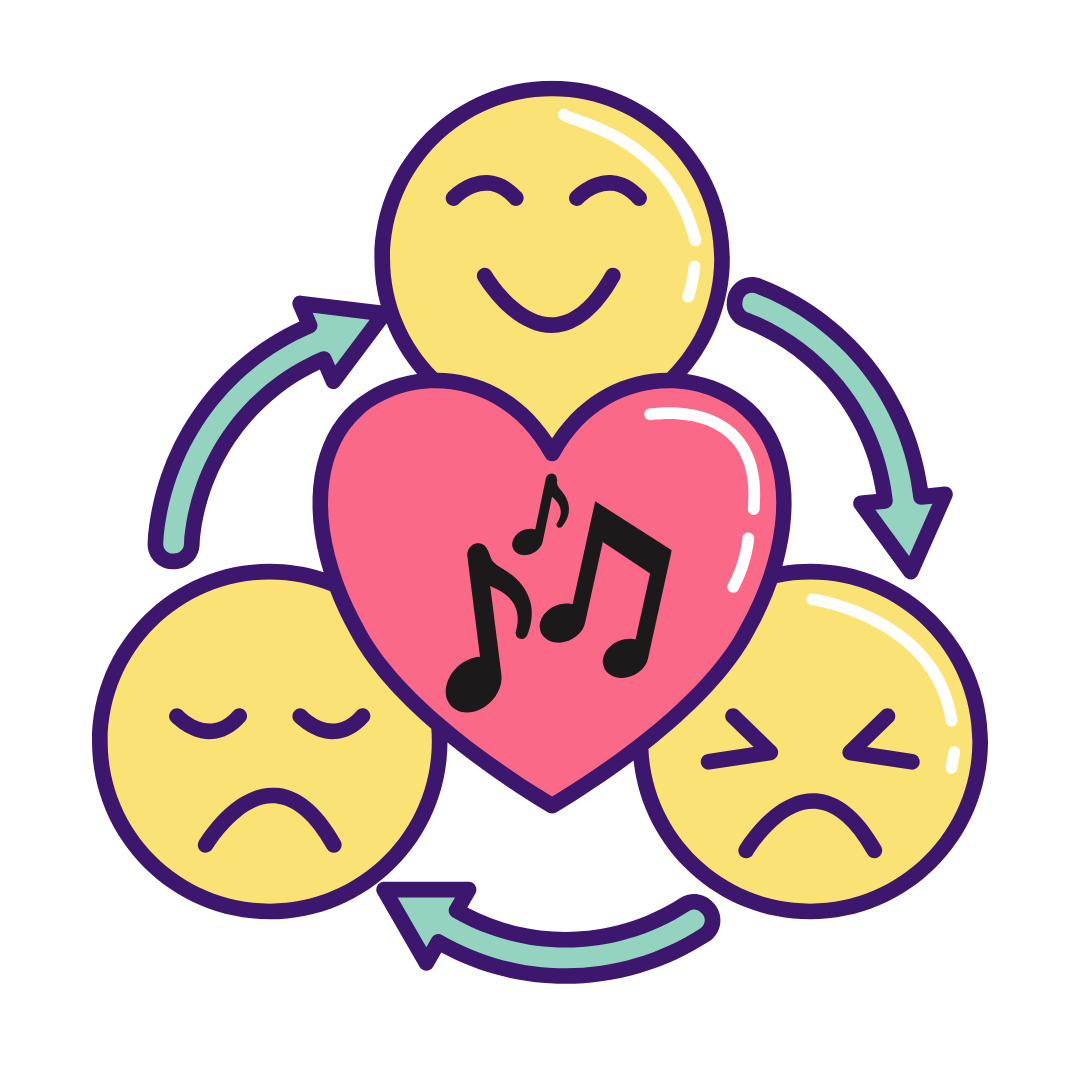
2. Supporting Mindful Eating and Movement
Music can enhance mindfulness. Try eating with gentle, instrumental music in the background to help you slow down and stay present. Likewise, adding music to gentle movement (walking, dancing, stretching etc) can help you enjoy your body rather than fight against it. It’s not about performance, it’s about connection.
3. Expressing What Words Can’t
Recovery often involves feelings that are hard to name: grief, anger, confusion, regret. Music can give you permission to feel without needing to explain or justify. You might:
Play an instrument
Sing (even if it’s just in the shower)
Write your own lyrics
Create a playlist that tells your story
These creative acts can be deeply cathartic and affirming.
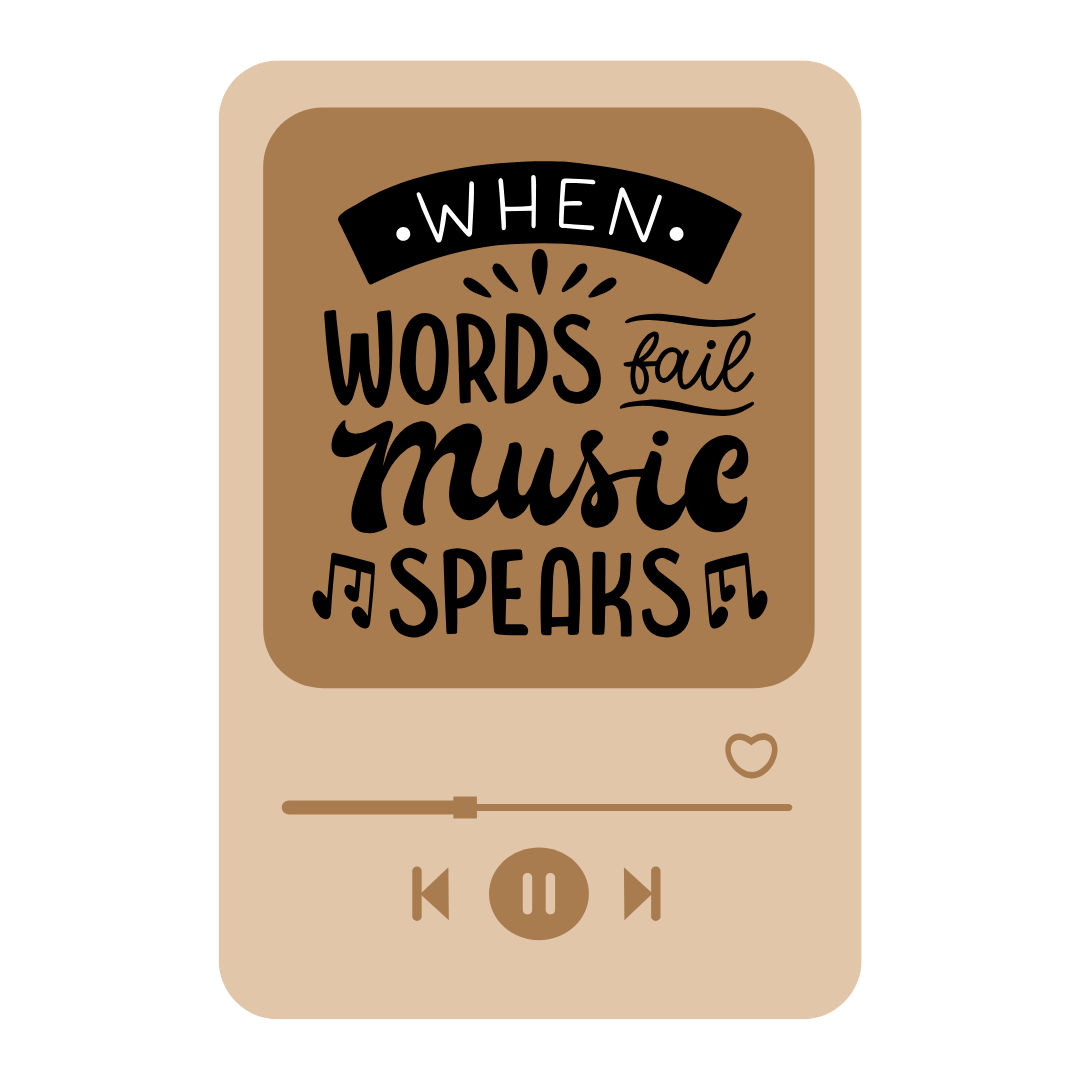
4. Create Rituals and Anchors
In early recovery, it helps to have consistent daily rituals that support your nervous system. Music can anchor you:
Morning: Wake up with a calming or inspiring track
Midday: Pause for a 5-minute sound meditation or binaural beats
Evening: Wind down with gentle instrumental music
During cravings: Use music as a conscious pause before reacting
These small moments can gently build a life that feels more stable and grounded.
Personal Reflection: What Role Has Music Played in Your Life?
Take a moment to ask yourself:
“Are there songs that remind you of a time you felt strong or free?”
“Have you ever used music to get through something painful?“
“What kinds of sounds help you feel safe, calm, or seen?”
These questions aren’t just nostalgic, they’re therapeutic. Your relationship with music may hold powerful clues about what you truly need.
Getting Started: How to Use Music and Sound in Your Recovery
Build a “recovery playlist” - Include songs that make you feel hopeful, understood, peaceful, or energised.
Try a free sound bath - Search YouTube for “sound bath meditation” or “singing bowl healing” to experience it at home.
Use your voice - Hum, chant, or sing. Vocal vibrations are deeply regulating to the vagus nerve.
Journal with music - Play instrumental music and write freely for 10 minutes. Let your emotions guide the pen.
Explore music therapy - If you’re interested, look into certified music therapists in your area or online.
Final Thoughts
Music can be a powerful emotional tool in food addiction recovery
Sound therapy offers healing beyond words, helping calm the body and reconnect you to yourself
You don’t have to be musical to benefit, simply listening with intention is enough
Building music-based rituals can create safety and emotional regulation without food
Recovery is not just about what you remove, it’s about what you add. Music and sound offer joy, comfort, and expression in a way that no food ever could. You deserve to feel those things, not just in recovery, but in life
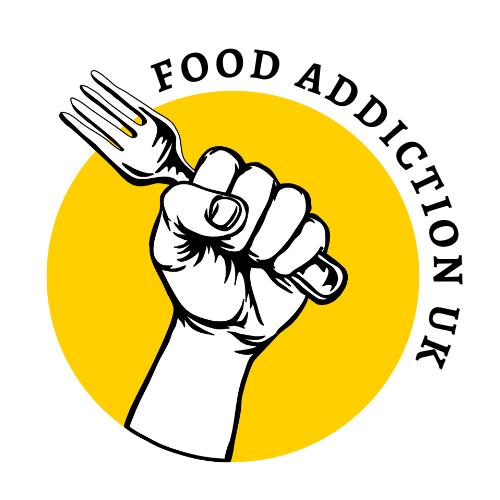
Need Support?
Join our community or reach out to talk with others who get it.
You don’t have to do this alone.
Copyright © 2025 · Food Addiction UK

